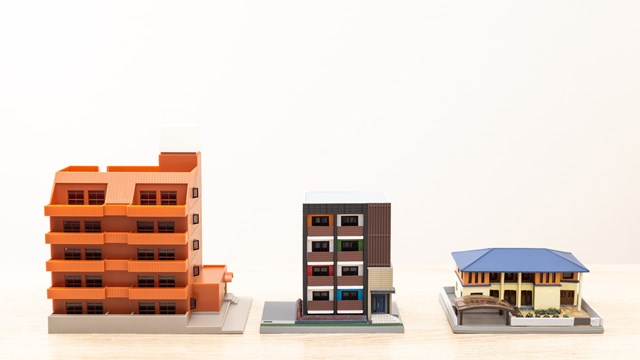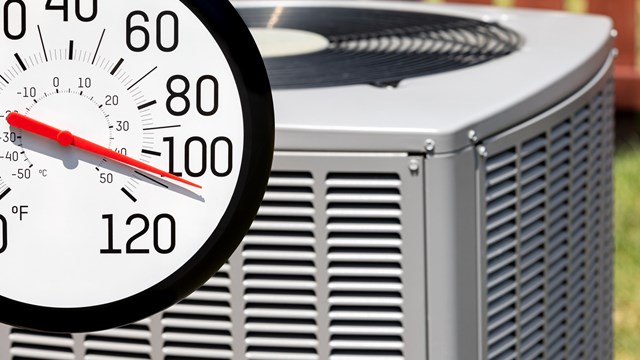Like people, co-ops and condos come in all shapes and sizes; some large, some small. The lifestyle within a particular building or association is often dictated to a large degree by the size of that building or association; huge, multi-building developments just have a different sensibility (and level of means) from that of a five-story walk-up, or a four-unit independent association. The differences in lifestyle between large and small buildings are even more pronounced right now, as the coronavirus crisis rages on.
Responses to the pandemic have been different depending on a building’s or association’s size as well. In high-rise and mid-rise buildings with more residents and amenities and less space for social distancing, questions may arise, such as how and when to shut down building-wide amenities like gyms and green spaces, or how many people can safely ride in an elevator.
Conversely, in small buildings — particularly those with fewer than 15 units and no dedicated staff or management — consideration must be given to basic issues, like how to keep the property sanitized, as well as to how social distancing may disturb what are often very tight-knit communities where residents are more like family than neighbors.
Nothing Much Has Changed
Margery Weinstein is an attorney with New York City-based law firm Ganfer Shore Leeds and Zauderer and represents a small co-op in Manhattan with less than 10 units. According to her, “The co-op president reports that the shareholders/residents aren’t really doing anything different since the New York State ‘on pause’ orders.” She says that the building has a part-time super who, along with his crew, is still coming in to clean the lobby, vacuum, and take out the trash and recycling. They are fully masked and gloved, and are paying more attention to spraying the doorknobs and other high-touch spots in the building that are likely to have the most contact with human hands.
Weinstein goes on to say that “the president also reports that the co-op continues to allow deliveries of packages, including food deliveries.” One new policy in line with the “pause” orders is that all residents must wear masks in common areas and maintain the now-ubiquitous six feet of physical separation between each other.
For the residents of this building, aside from some minor practical adjustments and more focus on cleaning for the staff, not much has changed. But is that the case for all small properties?
New England Neighborliness
Rick Montgomery lives in a six-unit walk-up condominium property in Cambridge, Massachusetts, consisting of two side-by-side Queen Anne Victorian-era homes. He has lived in the building since 1995, and says the maintenance of the property is ‘self-driven.’ “Prior to the COVID-19 crisis,” says Montgomery, “we assigned ourselves day-to-day and week-to-week stuff like keeping the common space clean, removing trash, etc. at the first condo meeting of the year. For other stuff, like lighting, the rule is that if you see a problem and can fix it easily, do so, and the association will reimburse you for any out-of-pocket expenses. For project work like replacing the fencing or roof, getting the house repainted, getting tree work done, etc., we ask for volunteers to run point on the project – getting info, quotes, and so forth from the vendors. It has never been a problem. If it’s a particularly large or complex job, we get more than one person to work on it.”
Since the current crisis erupted, Montgomery says that while day-to-day operations have largely stayed the same, residents are definitely making a point not to be in the common spaces at the same time if possible. He adds that it’s also generally been hard to get contractors to come to look at proposed projects, and then have one or two owners with them at the same time, all while doing social distancing.
The condo has one elderly owner in her 80s. The association previously engaged the city of Cambridge and the resident’s nephew to intervene on her behalf and convince her to accept social services that she needed, but had historically declined. At present, since social services workers can’t come into her space for meals and wellness checks, they leave meals and groceries at her door and communicate through the glass window. “She still gets cleaning/housekeeping help to come in,” says Montgomery, “and we interact with those people to keep tabs on her.
“We have a common laundry in the basement,” Montgomery continues. “Four of the six units use it, and we all try to stay out of others’ way when using the machine. It wasn’t uncommon to bump into people there, but that’s no longer the case. We’re very careful about that. Likewise, we now have meetings via conference call instead of face-to-face. Normally, we’d meet at least twice in person every year, once to come up with a list of potential projects for the upcoming year, assign the leaders, and so forth — then we’d meet again to review the proposals and figure out which projects to do and how to pay for them. These will all be done via conference call now.”
A Tree Grows in a Brooklyn Backyard
Julie Schwartzman is a resident of a 13-unit co-op located in Cobble Hill, an historic neighborhood in Brooklyn. The building has a managing agent and a contract with a part-time superintendent/maintenance staffer who handles several nearby buildings as well. Normally, the resident shareholders would hold an annual ‘spring-cleaning’ initiative to handle things like changing the smoke alarm batteries and cleaning up their backyard. That won’t happen this year.
“Since the advent of the COVID-19 crisis,” Schwartzman explains, “they have instructed their super to spend more time and effort cleaning and disinfecting anything in the building that gets touched regularly, like doorknobs.” They still permit deliveries to the building’s residents. “Building meetings are now conducted via Zoom,” she adds, “and everyone is wearing masks in the hallways and doing their best to maintain the six-foot social distancing rules.” Though that can be challenging in the narrow hallways and stairs, she says that “residents are conscientious, and voluntarily abiding by the new rules,” without the board having to draft anything formal to compel them to do so.
The building also has a laundry room, and Schwartzman says that residents are very cognizant of distancing there as well, giving each other the necessary space to transfer and fold clothes and linens. They also use the backyard to hang and dry laundry. Two of the residents are doctors, and they take extra care when entering the building after their shifts to avoid contaminating any common surfaces as they pass through to get to their unit.
While larger or more robustly staffed communities might have more of a cushion in terms of personal space and backup employees to cover shifts, “Small buildings,” says Schwartzman, “might be less complicated in times like this than a high-rise, because we all know each other so well.” Regardless of the size of your particular community, however, it’s crucial for residents, boards, management, and staff members to look out for each other and do their best to be good neighbors as we all work our way through this challenging time.
A.J. Sidransky is a staff writer/reporter for New England Condominium, and a published novelist.










Leave a Comment